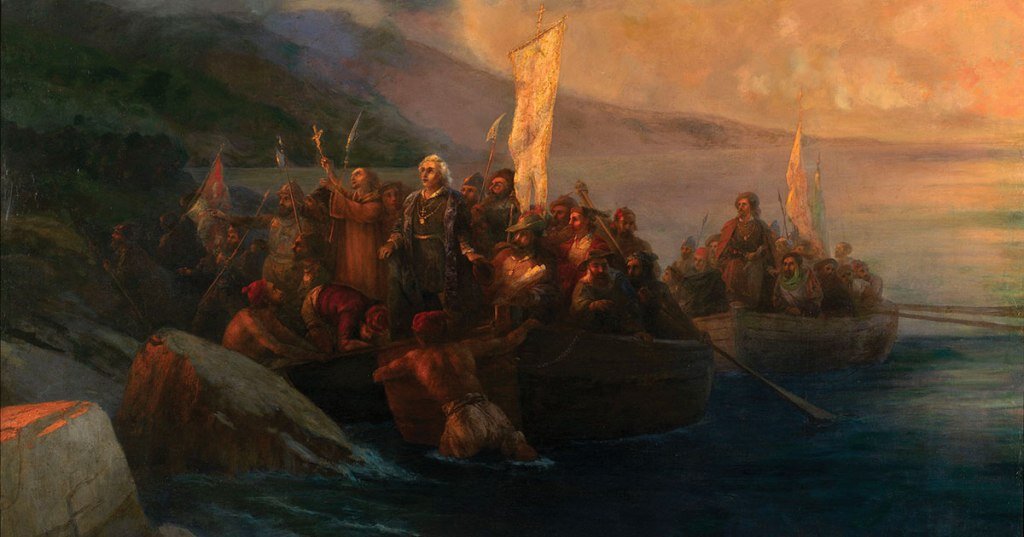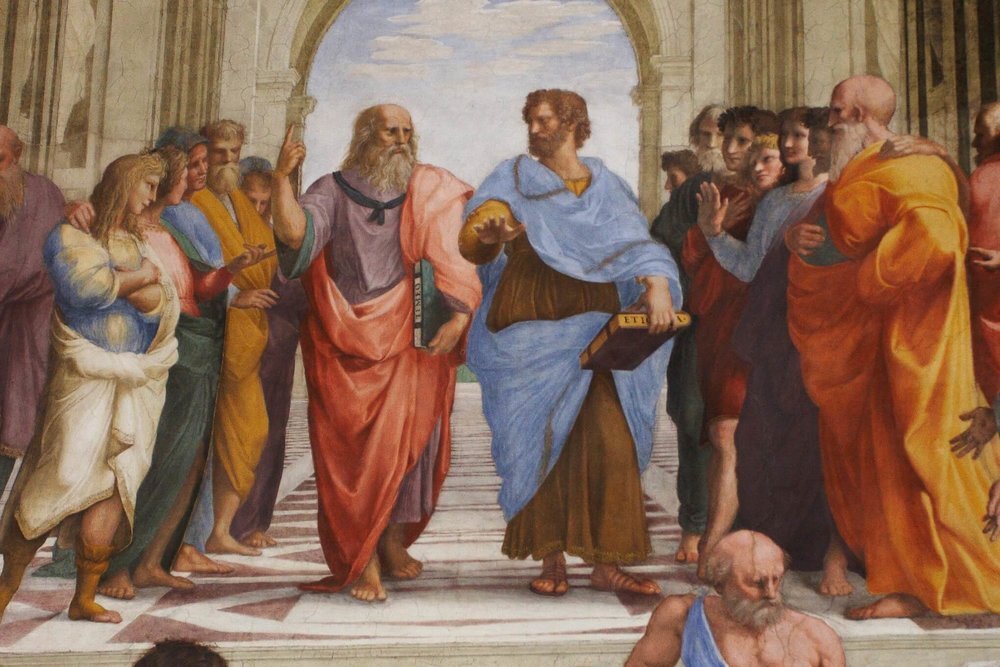
Pineapple on your pizza, sure. Anchovies, no.
You want pineapple on your pizza? Sure, you could get that anywhere. But try asking for anchovies! Nowadays, you get anything on your pizza, from barbeque chicken to kimchi. What is happening to pizza?

Tony Bennette
This past July, we bade farewell to Tony Bennett, one of the all-time great crooners. Tony Bennett, an artist of whom Frank Sinatra said “is the best singer in the business.”
The Iconic, Columbus

The Neapolitan Quartet
The Neapolitan Quartet is a set of novels to which many Americans have been introduced through the HBO series, My Brilliant Friend. While the television series does an excellent job of capturing the essence of the books and is well worth the watching, there is nothing that can compare to actually reading Elana Ferrante’s words. I devoured these books, not hesitating in going immediately from one to the next, as if each book were merely chapters of one complete work, which they were. Ferrante has described them as “a single novel” published in four volumes due to length and duration. They are like the Lord of the Rings Trilogy, one story across multiple books.

Canto 1: How Dark Was the Wood
In my January 27th post, Lost and Afraid in Dante’s Wood, I proposed that rather than interpreting the woods as Dante’s sinful life, we should see the forest as the fallen world in which Dante lived. In that article, I discussed how the dangers of the forest are metaphors for the spiritual threats we all face in life’s journey. This article explores the darkness of that wood.

Canto 1: Lost and Afraid in Dante’s Wood
This past May, I was fortunate enough to walk the Camino de Santiago. One morning, I headed out a couple of hours before dawn, hoping to reach my destination before the sun became too strong. There was no moon, so it was very dark. If there were any stars, I could not see them through the canopy formed by the trees. Although I had a headlamp, walking through an inky black forest was unnerving. I worried about what might be hiding in a clump of bushes farther up the path. Worse yet, what was behind me? I started to sing, hoping to frighten anything that might be nearby. Then I wondered, would I be scaring off potential predators or simply telling them where to find their breakfast? Although sitting in my comfortable, well-lit library, I can now laugh, I was more flustered than I care to admit.
The experience made real to me the confusion and fear Dante must have felt in Canto 1 of the Inferno. I, like Dante, was a pilgrim alone in a dark wood. Even as I say this, I feel the comparison is unfair to Signore Alighieri. Dante was lost and in the dark. He did not have a GPS to guide his steps or a rechargeable LED headlamp to light his path. Yet, even with these advantages, I was still apprehensive. It was not my best morning on the Camino.

Easter, Holy Week, & Sorrento
What Befana Can Teach Us
Is the Feast of Seven Fishes Italian
Lampadusa, The Last Leopard
The Many Saints of Newark

Canto 1: The Journey
Many have long described The Divine Comedy as the greatest work of Western literature. This acclaim is due, in part, to Dante making his journey from bondage to freedom personal to his readers. His poem reaches out and pulls us into the experience of his spiritual enlightenment.
Dante begins by telling us, “Midway in our life’s journey / I awoke to find myself lost in a dark wood.” The tension created between “our life’s journey” and “I awoke” is a subject of a great deal of speculation. What was the authorial intent? Why didn’t Dante simply write in the middle of my life’s journey, I awoke? We might brush off this conflict as sloppy writing, that Dante had intended no deeper meaning here, but I believe this would be a mistake. While I cannot say with any absolute authority what Dante had intended, I think there is a purpose in his choice of words. And, that purpose is an example of how Dante draws us into the poem from the very start.
In Praise of Labor
Canto 1: Midway On The Journey
Midway upon the journey of our life / I found myself within a forest dark / For the straightforward pathway had been lost. These first three lines to The Divine Comedy are so well known that even many who have never read it know them. However, I have discovered that the deeper meaning of things that are well known often escapes us. Such is the case with these opening lines.
In one Dante class, the students who were in their late teens and early twenties wrote these lines off as Dante having a midlife crisis without much further consideration. There it was, a tidy little package all wrapped and labeled. Let’s move on to the good stuff of seeing people tortured in hell. I must admit that the first time I read The Divine Comedy, I did the same thing, missing the entire setup to the poem. I did not repeat the error in subsequent readings later in life.
100 Days of Dante
This September 14th will be the seven-hundredth anniversary of the death of the greatest poet of western literature, Dante Alighieri.
This claim of Dante’s position in literature, is more than the assertions of an Italophile. Eric Auerbach, the author of Mimesis, said that there is Dante and then all others. Michael Dirda notes that in the early part of the twentieth century, “one important writer after another argues strongly for Dante – even above Shakespeare – as the central figure of European literature, the linchpin of the great classical and Christian tradition of learning and culture.” For Italians, Italian-Americans, and Italophiles Dante bears even greater importance than the rest of the Western World.

Dante at 700
This September 13th is the seven hundredth anniversary of the death of Dante Alighieri, the greatest poet in all of western literature.
I am not sure where to go from there with this post. There is so much I would like to say, but I am not quite sure how to put it all together in a logical way that fully expresses my feelings about Dante without sounding trite. So much has been written over the past seven hundred years that you could easily spend the rest of your life reading about Dante without ever reading his actual work. Has it all been said? Is there anything new to say about Dante?

A Voice for Columbus
The evil that men do lives after them, the good is oft interred with their bones. It is so easy to attack the dead, to misquote, to misrepresent motive, to manipulate the representation of past events.

Columbus On Trial
In my previous article, I discussed the man Christoph Columbus, details of who he was that are often overlooked by his detractors. In this article, I would like to review the chief accusation against him which was his involvement in the slave trade.

Columbus & The Historians
When I was a kid Columbus Day was a special holiday. OK, it wasn’t Christmas or Easter, but it was better than Arbor Day, with all due respect to that holiday. I didn’t think of it back then, but it was an acknowledgment of the contribution Italians made – and continue to make – to the United States.

To Preserve Our Democracy
I understand that this is not necessarily an exclusively Italian topic or that I quote Italian philosophers. However, in the light of current events I feel compelled to remind all of my followers of what happens when a demagogue seizes the reins of power. This is an article I wrote for a philosophy newsletter that I think is a timely subject.